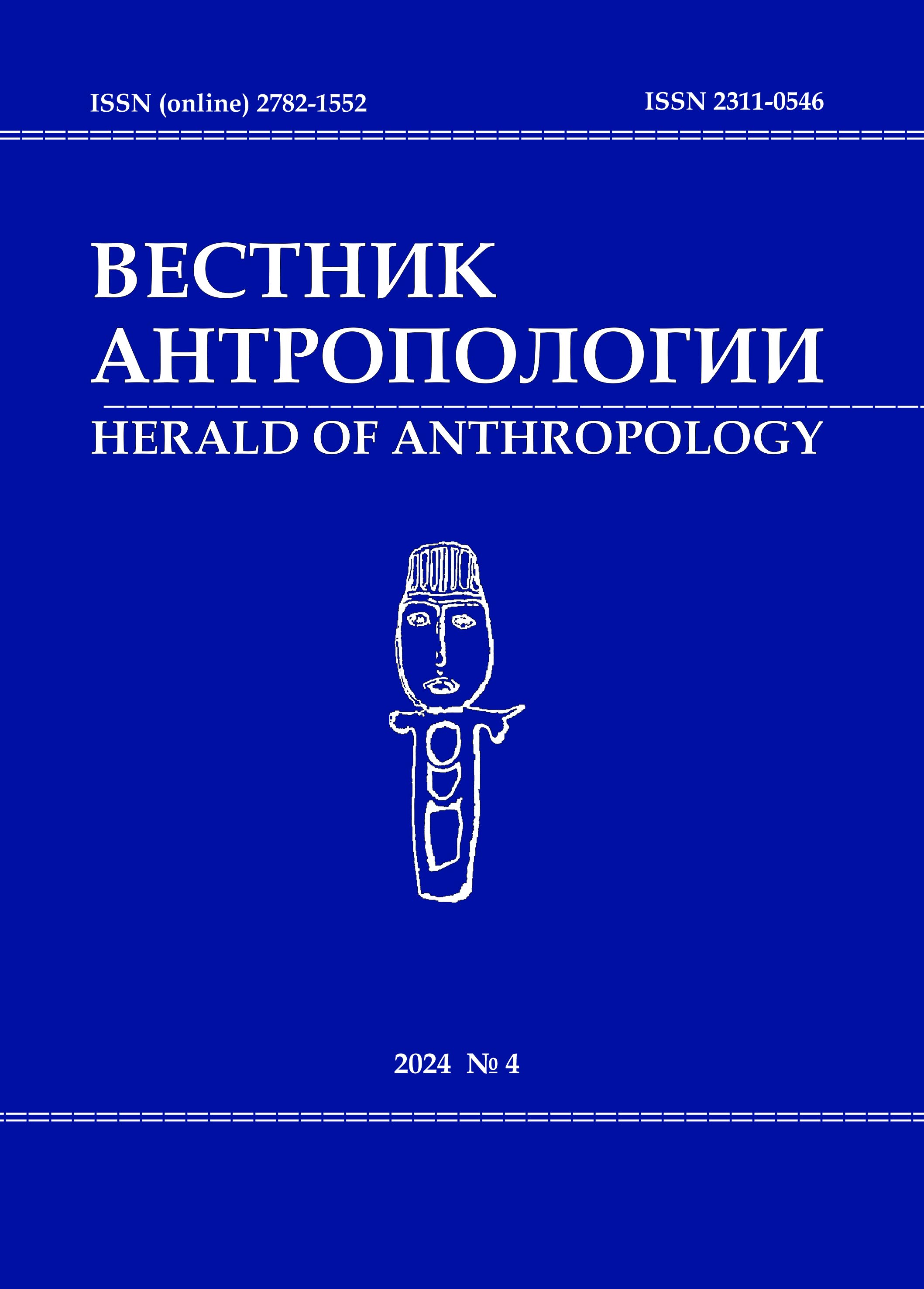Transformation of the Celebrations and Entertainment Culture of Russians under the Influence of the Orthodox Clergy (Second Half of 19th — early 20th Century)
10.33876/2311-0546/2024-4/117-131
Keywords:
anthropology of religion, celebrations and entertainment culture of Russians, transformation of game repertoire, individual and personality factors, Orthodox clergy, variabilityAbstract
Both global social, economic and political factors on the one hand and personal ones on the other determine the ways in which the folk celebrations and entertainment culture transform over time. The article, based on archival, published and the author's field materials, presents the results of a study of how parish clergy affected the folk celebrations and entertainment culture, playing style and repertoire in accordance with church regulations. The activities of the priests, representing a set of individual practices, were focused on achieving a common goal — the assimilation of Christian doctrine by the peasantry and the introduction of norms of behavior corresponding to Christian ethics into everyday life, including in the celebrations sphere. The study showed that thanks to continuous efforts to introduce Christian tenets into the collective consciousness of the peasants, the priests were able to gradually transform the basic understanding of a holiday, making it more canonical, which certainly influenced the forms of folk fun. As a result, a system of temporal, locative, age-related, and action-based prohibitions emerged that define the acceptable framework of the Celebrations. They were effective regulators of behavior, performing an educational and training function. The results of the transformation of the celebrations and entertainment culture are mainly presented in two variants: 1) adaptation of Christian institutions resulting in a syncretic form, including both pre-Christian and Christian elements; 2) complete displacement of unwanted entertainment from everyday life. In general, the transformation of the celebrations and entertainment culture was a complex and multidirectional process. On the one hand, it was in line with Christian institutions, on the other, a return to «pagan» forms was often observed. Abstract concepts about the sinfulness of profane entertainment, which were transmitted by the priests, could not displace the archaic attitude towards the festive and playful sphere of life and devalue the ritual, magical and socio-cultural functions that fun and play performed in peasant society.





















